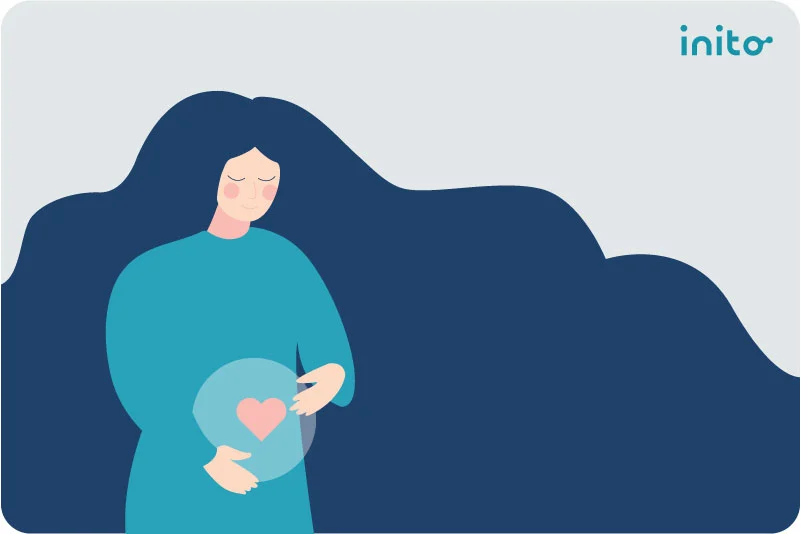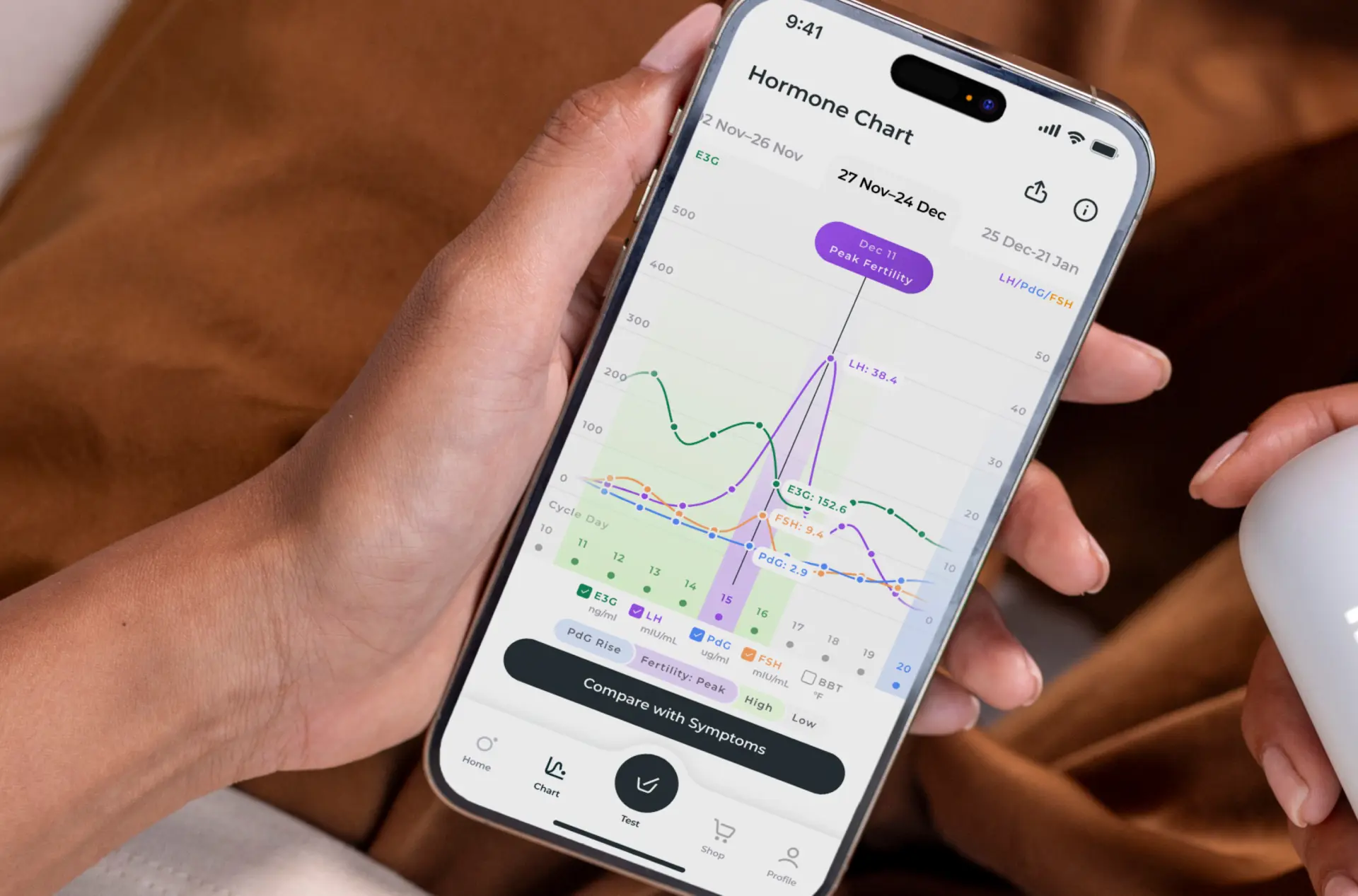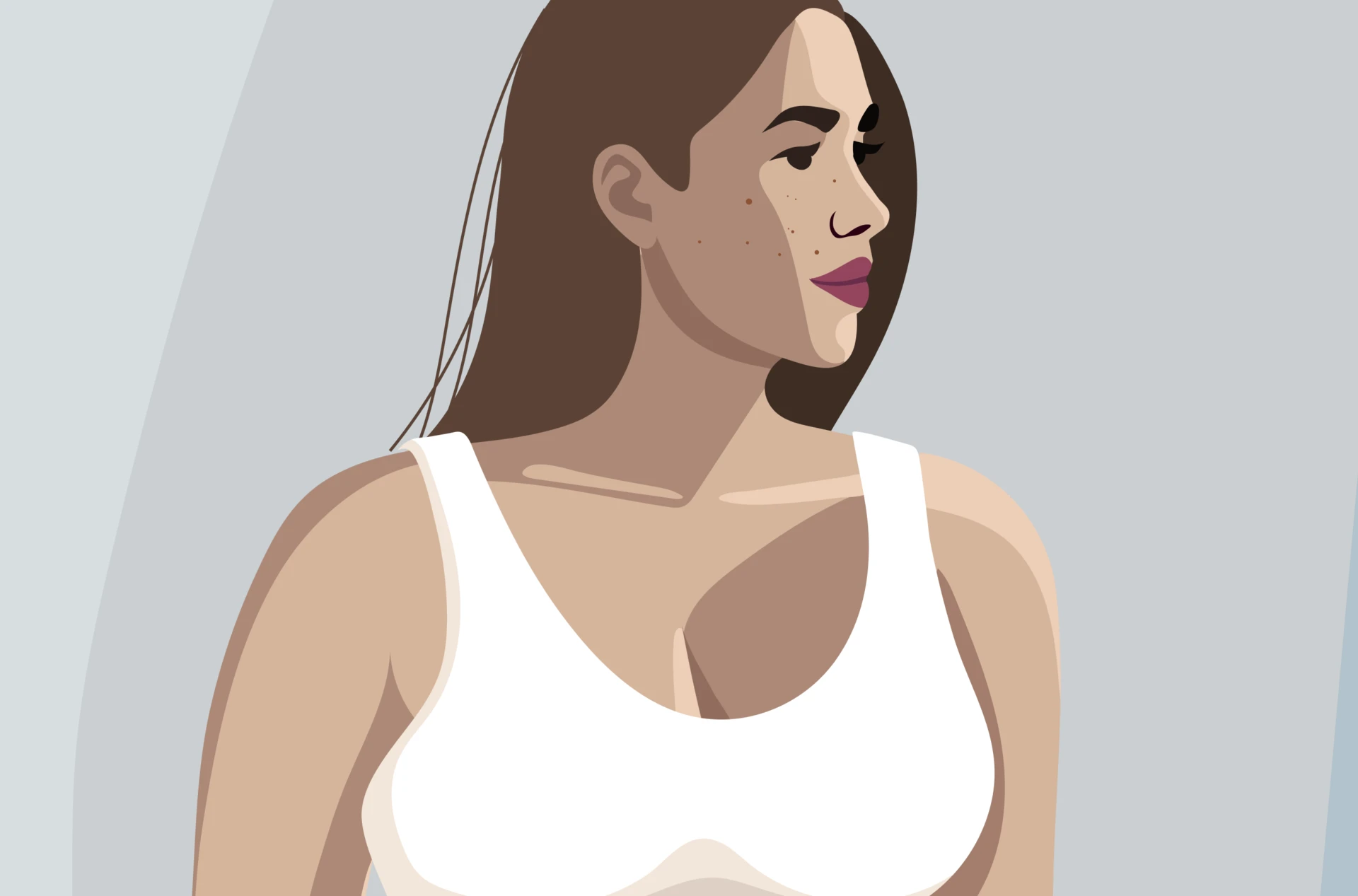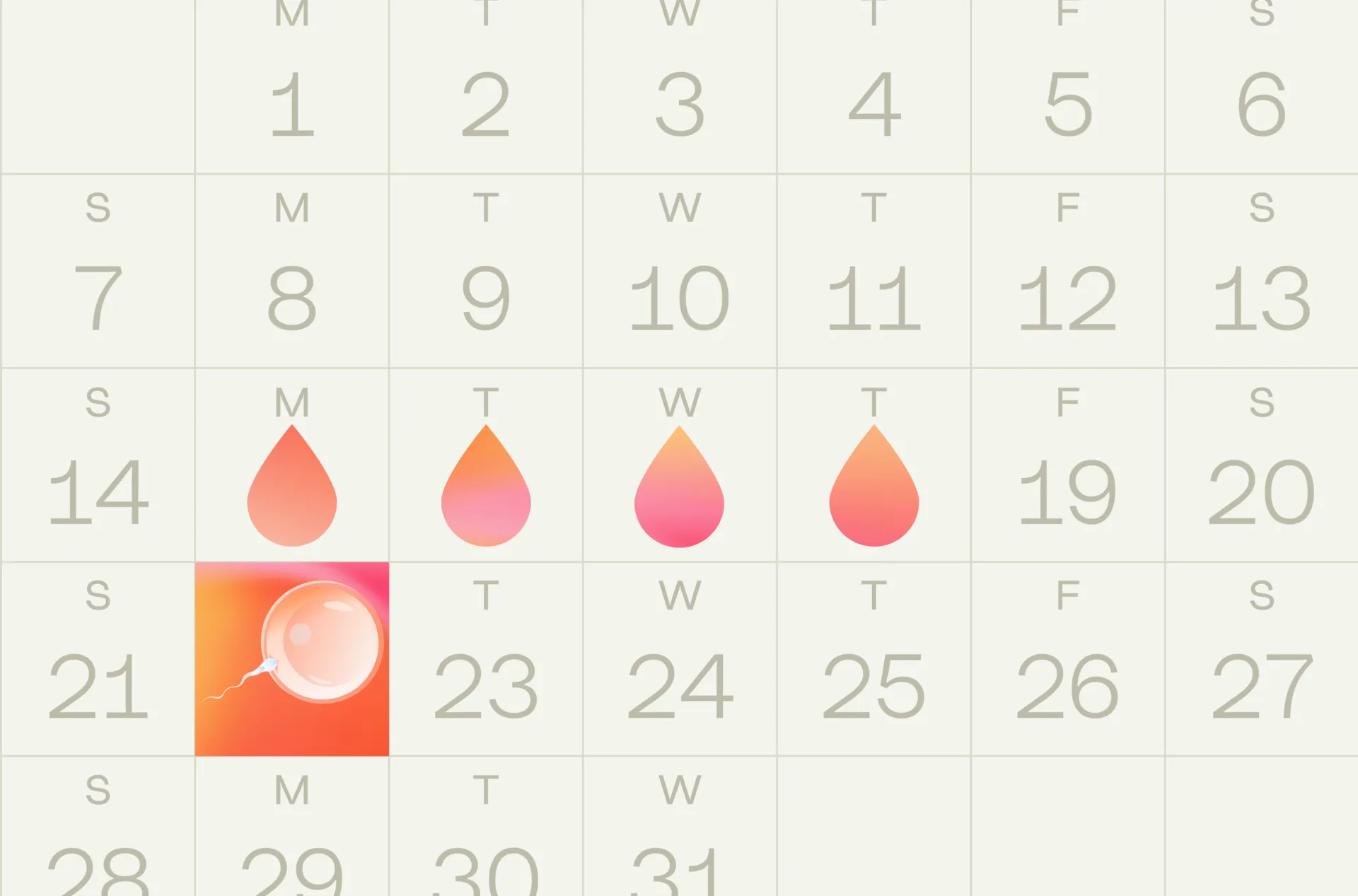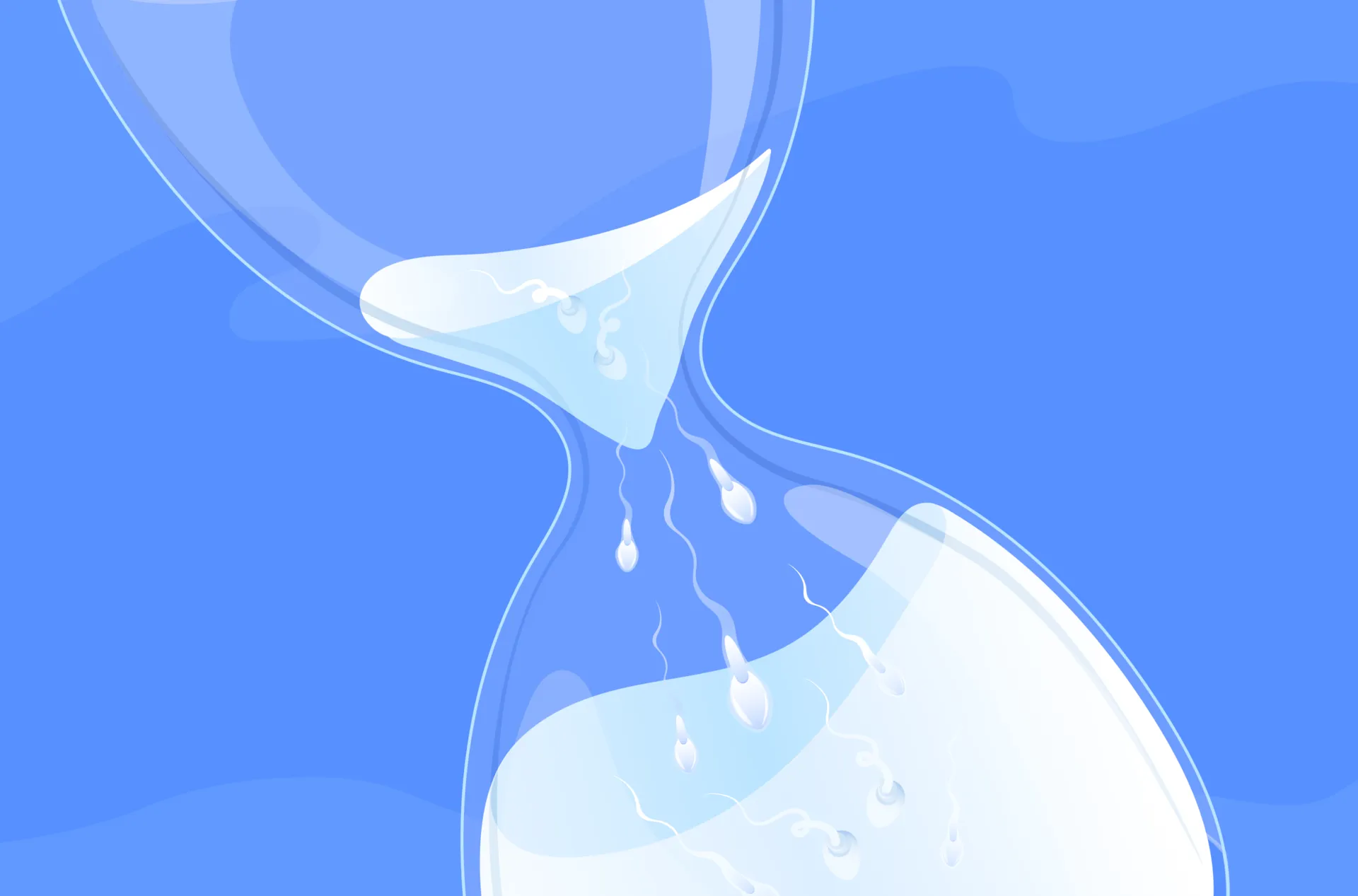Content table
Before getting pregnant, you knew the common aches and pains associated with your cycle. Now that you’re in the early days of pregnancy, getting to know your changing body is like navigating uncharted territory.
Many women experience ovary pain in early pregnancy, but it may not be cause for concern. We cover the different causes of ovary pain during early pregnancy and what to do about them.
Key Takeaways
- Ovary pain during early pregnancy can be caused by a number of conditions.
- Underlying conditions can increase your risk for ovary pain in pregnancy. Risk factors include PCOS and endometriosis.
- Dull, mild ovary pain may resolve on its own.
- If you’re having sharp, unrelenting pain, you should be seen by a healthcare provider
- Ovary pain combined with nausea and vomiting or heavy bleeding may be a sign of an emergency.
- Pain is personal. If you feel like something is wrong, say something to your doctor.
What Does Ovary Pain Feel Like in Early Pregnancy?
Ovary pain feels like discomfort below the belly button. During early pregnancy, you may feel pain in the right or left side, depending on which ovary is affected.
Ovary pain can be dull and constant or sharp and sudden. Some people experience sharp pain when coughing or sneezing. It may also hurt when you sit down or get up.
Other symptoms associated with ovary pain are:
- Cramping
- Bloating
- Feeling full
- Nausea and vomiting
- Dizziness
- Shoulder pain
- Bleeding more or less than a menstrual period
About 20% of women experience pain or bleeding during early pregnancy. These symptoms usually resolve with time and women proceed with a healthy pregnancy.
However, ovarian pain can be a sign of a serious condition that a healthcare provider should check out. There are many reasons why you could experience ovary pain in early pregnancy.
Reasons for Ovary Pain in Early Pregnancy
As you progress through pregnancy, we’re here to answer all your questions. Your only job is to be in tune with your body.
How much do you normally bleed with periods? Do you usually have ovary pain during your cycle?
The better you know your body, the easier it is to spot something abnormal. There are scary causes and not-so-scary causes of ovary pain in early pregnancy. Let’s discuss each.
Less concerning causes of ovary pain in early pregnancy
- Dull, aching pain: Ovarian cysts, fibroids
- Cramping: Implantation, endometriosis
- Bloating or feeling full: Ovarian cysts, fibroids, expanding uterus
- Light spotting: Implantation
A growing uterus
The uterus is the house the baby lives in until he or she is born. As your budding baby grows in your belly, your uterus must expand too.
The growing uterus can push up against other reproductive organs like the ovaries. The discomfort you’re feeling may be as simple as growing pains!
Implantation
Some people notice ovarian pain during implantation. This is when the fertilized egg attaches to the uterine wall. Implantation happens several days before your missed period.
Implantation cramps can be a sign of early pregnancy. They’re often mistaken for period cramps because they share similarities.
Implantation cramps feel like mild low belly cramps. Unlike period cramps, they pass quickly and are not severe. It’s normal to experience light spotting at this time.
Fibroids
A fibroid is a solid, noncancerous mass that grows in or on the uterus. As the mass grows, it creates pressure on the lower abdomen. This makes your belly feel fuller and bigger.
Although uterine fibroids don’t form in the ovaries, they can cause a sharp pain in the ovaries, felt in the lower back or abdomen.
Uterine fibroids are common, and you may have had one without realizing it. In fact, 40-60% of women have had a fibroid by age 35.
Fibroids tend to go away on their own, but sometimes they become too large and need to be removed. During pregnancy, elevated estrogen levels may cause fibroids to grow excessively. They’re most likely to increase during the first 10 weeks of pregnancy.
Notify your provider if you feel sudden, severe belly pain during early pregnancy. This could be a sign of a growing fibroid that needs treatment. Uterine fibroids may be linked to spontaneous miscarriage and bleeding in early pregnancy.
Endometriosis
Endometriosis occurs when the uterine lining grows outside of the uterus. The lining may develop in the ovaries (ovarian endometriosis) or fallopian tubes. It causes painful periods, pain during and after sex, and infertility.
About half of women experiencing infertility have endometriosis. For those who become pregnant with endometriosis, there may be some risk.
If you’re pregnant and have endometriosis, be sure to discuss it with your obstetrician. Ovary pain during early pregnancy may be a sign of something more serious than typical endometriosis pain.
Having ovarian endometriosis can cause problems during pregnancy including:
- Bleeding in the abdomen
- Rupture of the uterus
- Gut perforation
- Ovarian torsion
- Endometriosis cyst breaking open
These complications are rare but serious. Certain abdominal issues like gut perforation may need to be treated with surgery.
It’s possible to have abdominal surgery during early pregnancy. The decision will depend on what’s safest for you and the baby.
Serious Causes of Ovary Pain in Early Pregnancy
Serious complications during early pregnancy – like a bleeding mass or tumor – may require surgery. If it’s not life-threatening, your physician may be able to monitor ovary pain throughout pregnancy. Tests like ultrasounds and bloodwork may be enough to keep you and your baby safe.
Here are some of the serious cases of ovary pain:
Sudden, sharp pain: Ovarian torsion, growing fibroids, ectopic pregnancy
- Severe cramping: Miscarriage
- Shoulder pain: Ectopic pregnancy
- Nausea and vomiting: Ruptured ovarian cysts, ovarian torsion
- Dizziness: Ruptured ovarian cysts, ectopic pregnancy
- Heavy bleeding: Ruptured ovarian cysts, miscarriage
- Bloody or pink cervical mucous: Miscarriage
- Complications From Ovarian Cysts
Some women are prone to getting ovarian cysts, which are fluid-filled sacs that form in the ovaries. People with polycystic ovary syndrome (PCOS) get cysts frequently.
If you’re one of the 6-12% of women in the U.S. with PCOS, you’re familiar with the challenges it brings. PCOS causes ovary pain, hormone imbalance, and fertility challenges.
Modern medicine is making it easier for women to get pregnant with PCOS (yay!), but ovarian cysts can be problematic during pregnancy.
Cysts can bleed, break open, and twist – sometimes causing a medical emergency.
Ovary pain may be one symptom of ovarian cyst complications during early pregnancy. Serious complications include:
- Hemorrhagic cysts – cysts that bleed
- Ruptured ovarian cysts – cysts that burst open
- Ovarian torsion – cysts that twist
If you were diagnosed with ovarian cysts before getting pregnant, have a discussion with your doctor about your cysts. During early pregnancy, look out for signs of the cysts bleeding, rupturing, or twisting. The symptoms include:
- Heavy bleeding
- Nausea and vomiting
- Dizziness
- Fever
- Sudden, sharp lower belly pain
Pregnancy complications or loss
An ectopic pregnancy happens when the fertilized egg is implanted outside of the uterus, usually in the fallopian tube. The implanted egg may cause the fallopian tube to burst open, leading to heavy bleeding.
Ectopic pregnancy causes abnormal bleeding and pain in the ovaries or lower back. You should be visit your healthcare provider if you have any of these symptoms:
- Sudden pain in the lower belly
- Weakness or dizziness
- Shoulder pain
A miscarriage is a loss of pregnancy before 20 weeks gestation. Symptoms of a miscarriage include:
- Heavy or light bleeding
- Bloody or pink cervical mucus
- Severe pain or cramping
Ovary pain during early pregnancy loss is different from period cramping. During a miscarriage, you may have strong muscle contractions with pain in the lower back.
The Role of Hormones in Causing Ovary Pain in Pregnancy
When you become pregnant, your hormones adjust to support a healthy pregnancy. The ovaries release these hormones, and sometimes hormonal changes can cause ovary pain.
Balanced hormones prevent some conditions that cause ovary pain in early pregnancy.
Estrogen
Hormones play a role in chemical changes in the cells. This helps the baby’s cells to develop and grow normally. Balanced hormones allow the baby to grow while the placenta is forming.
At the beginning of pregnancy, estrogen levels rise until the placenta is formed. Estrogen helps the placenta develop so it’s fully functional.
Once formed, the placenta takes over to nourish your baby. It’s an organ that develops in the uterus to give the baby nutrients.
It’s important to have normal estrogen levels at the beginning of pregnancy. If they’re too low, pregnancy could result in miscarriage.
Progesterone
When you’re trying to get pregnant, your hormones rise and fall to ease the fertilization of an egg. After you ovulate, progesterone levels rise to support pregnancy. If the egg is not fertilized during a cycle, progesterone levels drop.
When you get pregnant, progesterone levels continue to rise. Progesterone helps your body create a healthy womb for the baby.
Progesterone prevents uterine muscles from contracting. Uterine contractions can get in the way of implantation. This is when the fertilized egg attaches to the lining of the uterus to make a baby.
In early pregnancy, progesterone thickens the uterine lining. This helps to prevent miscarriage by giving the baby a stable place to grow.
Managing Ovary Pain at Home
If you’re experiencing ovary pain during early pregnancy, first describe it – is the pain dull or sharp, mild or severe? The severity of your symptoms and pain will determine how it’s treated.
You can treat mild or dull ovary pain during early pregnancy at home by:
- Taking a bath
- Using a heating pad
- Getting plenty of rest
- Staying well hydrated
When to Visit Your Doctor?
If you have any of the following symptoms during early pregnancy, consult your doctor:
- Sharp, sudden belly pain
- Heavy bleeding
- Fever
- Nausea and vomiting
- Weakness or dizziness
Ovary pain is different for everyone. Whether you’re trying to conceive or early in pregnancy, it’s important to know your body. If you have a gut instinct that something isn’t right, notify your doctor.
Some over-the-counter pain medications aren’t safe during pregnancy. Speak to your doctor before taking something for pain.

FAQs
It’s not uncommon to experience ovary pain when you first become pregnant. In fact, about 20% of women have pain or bleeding in the early stages of pregnancy. That said, not all ovary pain is equal. Some instances of pain are less serious, while others indicate a more serious condition or emergency.
There are a lot of factors that can cause ovary pain in early pregnancy. Some minor causes could be ovarian cysts, fibroids, or endometriosis. It’s also possible to feel ovary pain during implantation or in pregnancy when your uterus is expanding and putting more pressure on your ovaries. More serious causes of ovary pain include ovarian torsion or pregnancy complications like an ectopic pregnancy.
Yes, if you’re having pain on one side below your belly during early pregnancy, it could be ovary pain. Sometimes this is simply due to changing hormone levels, implantation, or your growing uterus. But if the pain is severe or you have other symptoms like heavy bleeding, vomiting, or dizziness, see your doctor ASAP.
The numbNo, ovary pain does not cause a miscarriage. In some cases though, it could be a sign of an underlying condition that can alert you to a potential miscarriage. In other words, ovary pain could be a symptom of miscarriage, but not a cause. An example is if you have an ectopic pregnancy (when the embryo implants inside the fallopian tube). This type of miscarriage could cause ovarian pain or pelvic pain.er of tests depends on the irregularity and length of your cycles. For someone with an average cycle length of 30 days, 12-15 tests may be required to track and confirm ovulation.
Was this article helpful?
- Ultrasound imaging in the management of bleeding and pain in early pregnancy
- What do implantation cramps feel like?
- Contemporary management of fibroids in pregnancy
- Endometriosis-associated Maternal Pregnancy Complications – Case Report and Literature Review
- Get pregnant with PCOS: Your complete guide
- Hemorrhagic ovarian cysts: Clinical and sonographic correlation with the management options
- When an ovarian cyst ruptures: Is it an emergency?
- A review of ovary torsion
- Ectopic pregnancy
- What Does Miscarriage Look Like? Know The Difference Between Miscarriage and Period
- Hormones in pregnancy
- The Importance of Progesterone Production During Early Pregnancy



